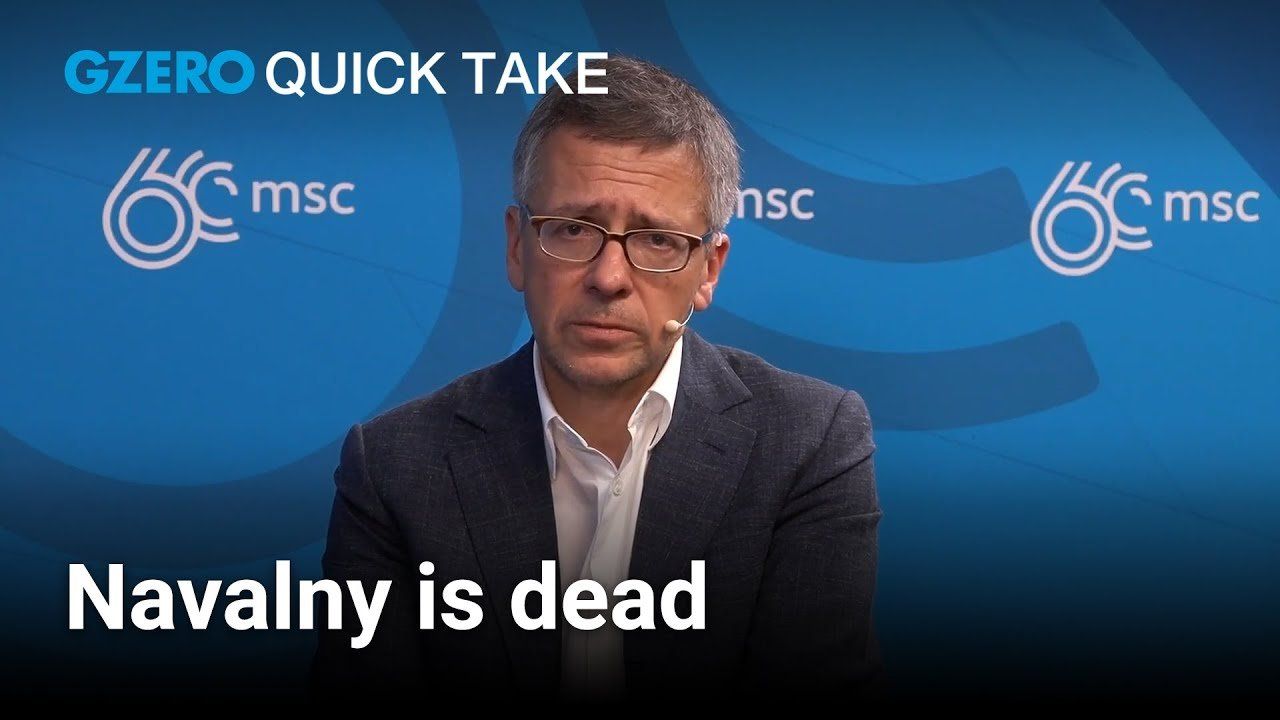Quick Take
Navalny's death is a message to the West

Navalny's death and the wider implication of Russia's impunity | Ian Bremmer | Quick Take

Ian Bremmer's Quick Take: Hi, everybody. Ian Bremmer here from the Munich Security Conference, just kicking off what is the most important security confab for NATO and the West every year. And the big news literally moments before the initial speeches for this conference, the announcement coming from Russia that Alexei Navalny had been imprisoned for years is now dead, looked fine yesterday, perfect health, when he was at a legal hearing today, suddenly died, supposedly of a stroke.
Putin, the Kremlin responsible, of course, and also a direct message. I think it's very clear to show the West to show the United States, to show NATO they can do what they want. They can act with impunity on their territory. They do not care if they are threatened. There was I remember after Biden met with Putin, this is back in 2021, and he said that it would be devastating. The consequences would be devastating for Russia if Navalny were to die in jail. Well, I mean, we've also said similar things to Putin about Russia invading Ukraine. And a couple of years on the Russian position, despite all of the economic damage they've taken, all of the military damage they've taken is that they will continue to engage in this war. They will continue to engage in human rights abuses. And it doesn't matter how the Americans or Europeans respond. The Russians will wait them out.
And that is the message that is being sent today. It's a very chilling message. I saw Vice President Harris and a number of European leaders all take to the stage, as well as Navalny's now widowed wife. All saying that this cannot be in vain, that there must be consequences. But ultimately, in an environment where rogue states feel like they have more ability to act on the global stage, Russia, Iran, North Korea, the so-called axis of resistance, terrorist actors, you will see more of this behavior. So the question is being put to the Munich Security Conference. Question is being put to NATO. Will you continue to work collectively? Will you take a stand against this sort of behavior? And Putin is watching that answer very, very carefully.
That's it for me. I'll talk to you all real soon.
At the 62nd Munich Security Conference, Parag Khanna, founder and CEO of AlphaGeo, says globalization isn't dead, it's evolving. Speaking with GZERO’s Tony Maciulis, he explains that countries are forming flexible alliances that expand and shrink based on their interests. “You’d rather be in the tent...if it suits your interest than not in it,” Khanna notes, highlighting how the US, Europe, and Asia are adapting to shifting global priorities.
Tune in today at 12pm ET/6pm CET for the live premiere of our Global Stage from the 2026 Munich Security Conference, where our panel of experts takes aim at the latest global security challenges. NY Times National Security Correspondent David Sanger moderates the discussion with Benedetta Berti, Secretary General, NATO Parliamentary Assembly; Ian Bremmer, President & Co-founder, Eurasia Group & GZERO Media; Dr. Wolfgang Dierker, Global Head of Government Affairs, SAP; and Brad Smith, Vice Chair & President, Microsoft.
Alina Polyakova, President and CEO of the Center for European Policy Analysis, warns that NATO faces a defining moment.
From the sidelines of the 62nd Munich Security Conference in Munich, Polyakova told GZERO's Tony Maciulis that the Arctic has become “an arena of incredible global competition,” with Russia and China expanding their ambitions. While President Trump’s focus reflects “the right instincts” on security, she argues allies must strike a mutual deal to secure the region together.